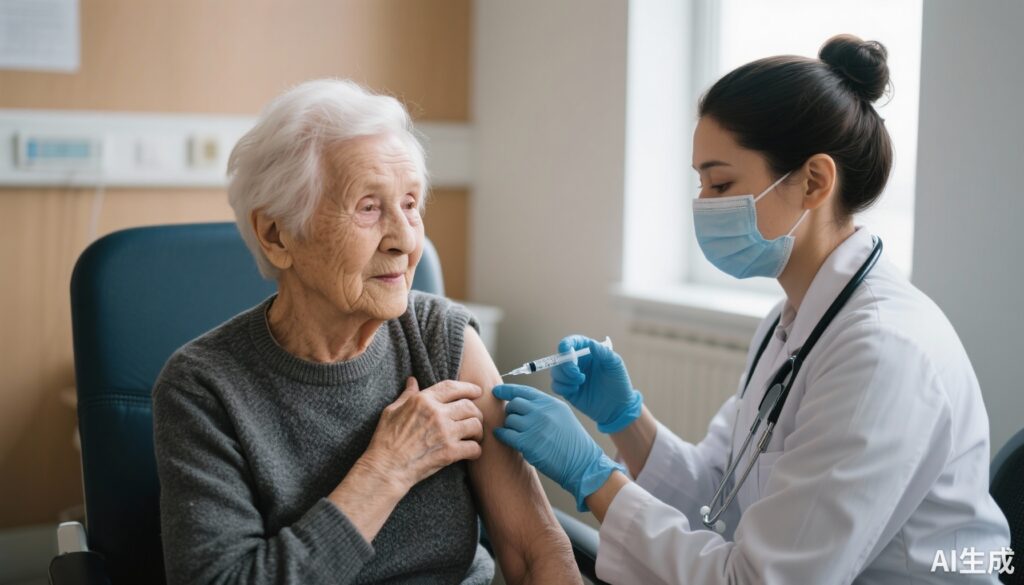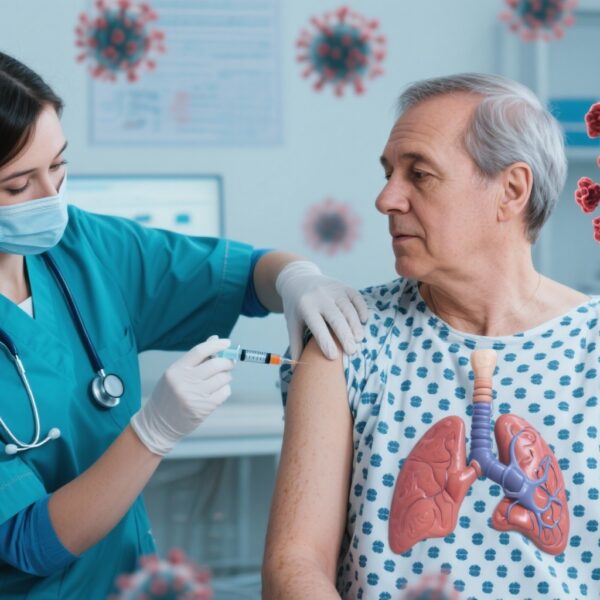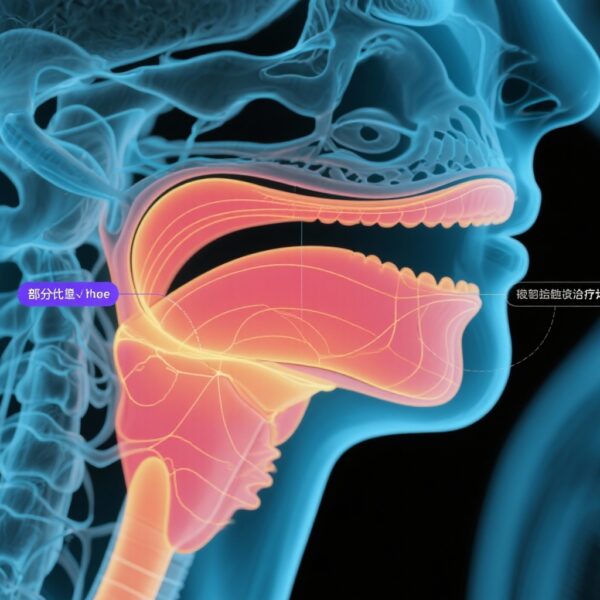Highlight
The AS01E-adjuvanted RSV prefusion F protein vaccine (RSVPreF3 OA) showed 62.9% cumulative efficacy against RSV-related lower respiratory tract disease (RSV-LRTD) over three consecutive respiratory syncytial virus (RSV) seasons in adults aged 60 years and above.
Both single-dose and revaccination after one year demonstrated comparable efficacy profiles, although efficacy gradually decreased over time.
The vaccine displayed a clinically acceptable safety profile with few serious adverse events related to the intervention and no new safety signals.
Efficacy was consistent across older age subgroups, frail individuals, and those with pre-existing conditions increasing RSV-LRTD risk, demonstrating broad applicability.
Study Background and Disease Burden
Respiratory syncytial virus (RSV) is a significant cause of lower respiratory tract infections, particularly affecting older adults and vulnerable populations. The elderly experience a considerable burden of RSV-related morbidity and mortality due to diminished immune function and frequent comorbidities. Despite decades of RSV research, durable and effective vaccines for older adults have been elusive, and the duration of protection conferred by vaccination remains poorly understood.
The AS01E-adjuvanted RSV prefusion F protein-based vaccine (RSVPreF3 OA) targets the stabilized prefusion conformation of the RSV F protein, an antigenic form critical in eliciting potent neutralizing immune responses. Previous studies have demonstrated promising efficacy after a single dose, but long-term efficacy, safety, and the impact of revaccination have not been clearly established.
This phase 3 multicentre trial (AReSVi-006) addressed these knowledge gaps by assessing the efficacy, safety, and immunogenicity profile of RSVPreF3 OA over three RSV seasons in adults aged 60 years or older, a population at high risk for RSV-related lower respiratory tract disease (RSV-LRTD).
Study Design
The AReSVi-006 study was a randomized, observer-blinded, placebo-controlled, phase 3 trial conducted across 275 centers including general practices and clinical research sites spanning 17 countries in Africa, Asia, Oceania, Europe, and North America. Eligible participants were aged 60 years or older and were assigned in a 1:1 ratio to receive either a single dose of RSVPreF3 OA or placebo before the first RSV season.
Recipients of RSVPreF3 OA were then re-randomized 1:1 before the second season to receive either a second dose of the vaccine (revaccination group) or placebo (single-dose group). Participants initially assigned placebo received placebo again in the second season.
The primary objective, previously reported, evaluated the vaccine’s efficacy against the first occurrence of RSV-LRTD over a single RSV season. The secondary confirmatory objective focused on demonstrating efficacy over three consecutive RSV seasons, both for a single vaccination and the revaccination approach, against RSV-LRTD overall and by RSV subtype (A and B). Success criteria for efficacy were predefined based on the lower confidence interval limits exceeding 20% for RSV-LRTD and exceeding zero for subtype-specific efficacy.
Safety assessments included serious adverse events related to vaccination and mortality. Immunogenicity was also evaluated but detailed immunogenicity data were not the study’s primary focus in this publication.
Key Findings
A total of 24,966 participants (12,468 RSVPreF3 OA vaccine recipients and 12,498 placebo recipients) were included in efficacy analyses. Median follow-up was approximately 30.6 months (IQR 26.2–32.0 months) from 15 days post-dose one, covering three successive RSV seasons.
Efficacy: The cumulative vaccine efficacy over three seasons for a single dose against RSV-LRTD was 62.9% (97.5% CI, 46.7–74.8%). Subtype-specific efficacy was 69.8% (42.2–85.7%) against RSV A-related LRTD and 58.6% (35.9–74.1%) against RSV B-related LRTD. These findings indicate broadly sustained protection across RSV subtypes.
The vaccine maintained efficacy in key subpopulations including those aged 60–69 years, 70–79 years, pre-frail individuals with reduced walking speed, and those with comorbidities that increase RSV-LRTD risk.
Efficacy demonstrated a downward trend over time but remained clinically meaningful across all three seasons. Participants receiving revaccination after one year showed efficacy within the same range as those receiving only a single dose, suggesting comparable protection with or without booster dosing over the studied timeframe.
Safety: RSVPreF3 OA demonstrated a favorable safety profile over the three-year observation period. Serious adverse events related to the trial intervention occurred in less than 1% of participants: 8 in the single-dose group, 12 in the revaccination group, and 12 in the placebo group.
Five deaths were assessed by investigators as related to the trial intervention: three occurred in vaccine recipients (cardiopulmonary failure, cardiac arrest, left ventricular failure) and two in the placebo group (death of unknown cause, pulmonary embolism). No new safety signals or patterns of vaccine-related morbidity emerged.
Expert Commentary
The AReSVi-006 trial provides robust evidence supporting the long-term efficacy and safety of the AS01E-adjuvanted RSVPreF3 OA vaccine in older adults across diverse global populations. The vaccine’s ability to confer protection for at least three RSV seasons is a landmark achievement in RSV vaccine development, considering prior uncertainty about durability of immunity in older populations.
The observation that revaccination one year later does not significantly outperform a single dose in efficacy warrants further investigation into optimizing vaccination intervals and strategies—especially given immunosenescence and varying exposure risks.
Study strengths include the large, multinational, randomized design; inclusion of at-risk subgroups such as impaired gait speed and pre-existing comorbidities; and robust follow-up duration capturing multiple RSV seasons.
Limitations include the lack of detailed immunogenicity data presented, absence of data beyond three seasons, and limited evaluation of vaccine impact on transmission dynamics or hospitalizations specifically.
Mechanistically, targeting the prefusion conformation of the RSV F protein likely underpins the vaccine’s potent neutralizing responses, as this antigen is known to elicit protective antibodies superior to postfusion F protein-based formulations in preclinical models.
Current guideline recommendations do not yet encompass RSV vaccination in older adults widely, but findings such as these can inform policy updates and integration into seasonal immunization programs akin to influenza vaccination.
Conclusion
The AS01E-adjuvanted RSVPreF3 OA vaccine demonstrates significant and sustained efficacy against RSV-LRTD across three consecutive seasons in adults aged 60 years and older, with an acceptable safety profile. These results mark a major advance in RSV prevention for older populations, a historically underserved group in RSV therapeutics.
Although efficacy wanes modestly over time, vaccination confers meaningful protection, reducing morbidity of a serious respiratory pathogen that disproportionately affects the elderly and those with comorbidities.
Further research should clarify the optimal revaccination timing, explore immunological correlates of protection, and evaluate real-world effectiveness and impact on RSV-related hospitalizations and mortality.
Given the global burden of RSV and growing elderly populations worldwide, RSVPreF3 OA’s favorable benefit-risk profile supports its incorporation into preventive health strategies targeting older adults.
References
Ison MG, Papi A, Athan E, Feldman RG, Langley JM, Lee DG, Leroux-Roels I, Martinon-Torres F, Schwarz TF, van Zyl-Smit RN, Cuadripani S, Deraedt Q, Dezutter N, Gerard C, Fissette L, Xavier S, David MP, Olivier A, Van der Wielen M, Descamps D; AReSVi-006 study group. Efficacy, safety, and immunogenicity of the AS01E-adjuvanted respiratory syncytial virus prefusion F protein vaccine (RSVPreF3 OA) in older adults over three respiratory syncytial virus seasons (AReSVi-006): a multicentre, randomised, observer-blinded, placebo-controlled, phase 3 trial. Lancet Respir Med. 2025 Jun;13(6):517-529. doi: 10.1016/S2213-2600(25)00048-7. Epub 2025 Apr 14. PMID: 40245915.



